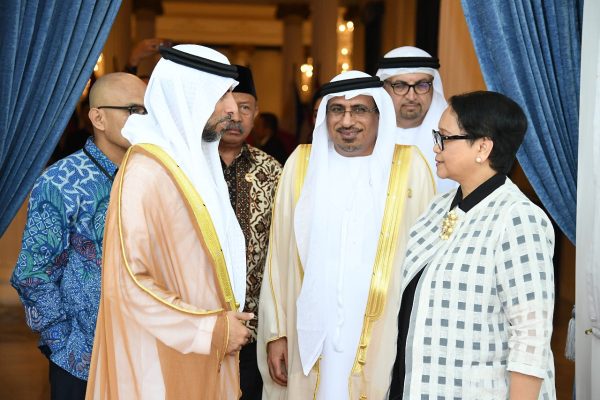The emerging bonhomie between the UAE and China is catching eyeballs
globally. Notwithstanding boycott of Beijing Olympics by a plethora of
countries including the US and UK, UAE sent a big delegation headed by
Crown Prince of Abu Dhabi Sheikh Mohamed bin Zayed Al Nayyan (MBZ)
who attended the inaugural ceremony of the games.
Chairman of Abu Dhabi National Oil company (ADNOC) also accompanied
the delegation. The increase in bilateral relations between UAE and China is
taken by both the countries as a win-win strategy.
The two countries have strategic and economic reasons for enhancing their
ties. UAE does not find other big powers including the US doing enough for
the development and stability of the region, which is being threatened due to
terror perpetrated by Iran-backed Yemeni Houthi rebel forces indulging in
intermittent drones and missile attacks.
While Beijing views the UAE as a regional hub with great potential for BRI
expansion and promising investment destination, the UAE looks up to China
for trade and investment diversification. Also, as Saudi Arabia a regional
competitor is moving towards greater economic opening, UAE cannot afford
to remain behind as far as taking advantage from Beijing’s trade and
investment in the region is concerned.
The UAE enjoys robust overall bilateral relations with Beijing. Beijing was
already the second-largest trading partner of the Emirates. Bilateral trade
exceeded USD 49 billion up till third quarter of 2021 and is on track to expand
to USD 200 billion by 2030.
Between 2005 and 2021, the value of cumulative Chinese investments and
construction projects reached USD 36.16 billion in the Emirates. Over 6,000
Chinese firms have invested in the Emirates in the fields of energy, ports,
infrastructure, communications and finance among others.
The UAE is now the largest logistics hub for China in the Middle East and
more than 60 per cent of China’s trade in the region now transits through the
Emirates.
Despite competitive growth within the Gulf, the Emirates had capitalised on
import, export and re-export opportunities in the region. It now wants to
capitalise Beijing’s digital initiative under the BRI. Beijing is looking at UAE’s
position as the leader in the region in terms of physical infrastructure as well
as digital and technology front. The UAE provides a gateway to the vast
emerging market of the entire gulf region of around 100 million residents.
On the other hand UAE wants to grab the opportunity thrown by increasing
interest of Chinese investors in the industrial sector. These extensive and
growing ties would seem to make UAE a prime candidate to serve as a
“strategic strongpoint” to Beijing.
One of the reasons for China’s unsuspected reception by the regional
governments including the UAE is its apparent non-interference in the
internal affairs of the countries in the region.
Of late, Chinese are also buying and investing in UAE’s real estate ostensibly
for the purpose of siphoning up off their ill-gotten wealth to escape Chinese
government’s legal actions. Real estate in UAE had drawn interest earlier
even from Russia and India. Chinese nationals with unaccounted wealth find
the UAE a safe haven to avert Beijing’s punitive actions.
Beijing intends to exploit the geographic and strategic position of the UAE,
which could provide an essential link in China’s grand economic strategy
under the BRI consolidating its position as a trade hub for the Middle East
and gateway to Africa. However, this does not guarantee that BRI-related
commercial engagement would be beneficial for the countries of the region.
In private, Gulf officials describe the BRI’s manifestation in the region as a
mirage, even while conceding that Beijing’s global economic clout is
undeniable. In fact, China is seen with suspicion in the Gulf countries for its
big brotherly approach as in other developing countries. Some Gulf officials
and businessmen, therefore, express greater eagerness to develop bilateral
partnerships with smaller countries like Israel guaranteeing level playing field
or countries like India, which treat the partner countries on equal footing.

China finds a new friend in UAE; increases bonhomie
by
Tags:
Leave a Reply